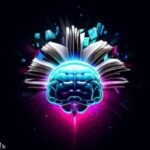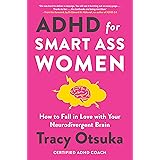Decoding the Science of Decision-Making: Insights from Neuroscience
Decision-making is an essential process that we engage in every day, whether consciously or unconsciously. However, have you ever wondered about the underlying mechanisms that drive our decision-making? Thanks to advancements in neuroscience, we now have a deeper understanding of how our brains make decisions and the factors that influence them. In this article, we will delve into the fascinating world of decision-making, exploring the insights provided by neuroscience.
The Role of Emotions in Decision-Making
Contrary to traditional belief, decision-making is not solely a rational process dictated by logical thinking. Emotions play a crucial role in shaping our decisions. Neuroscientists have discovered that the amygdala, a small almond-shaped structure in the brain, is responsible for processing emotional responses. When faced with a decision, the amygdala rapidly assesses the emotional significance of the options, guiding us towards choices that align with our emotional state.
For instance, when considering whether to accept a job offer, both logical factors such as salary and emotional factors such as personal fulfillment come into play. Our amygdala evaluates these factors, determining which choice aligns better with our emotional well-being.
System 1 and System 2 Decision-Making
Psychologist Daniel Kahneman identified two distinct processes involved in decision-making: System 1 and System 2. System 1 decisions are intuitive and automatic, driven by our emotions and past experiences. These decisions are quick and require minimal effort. On the other hand, System 2 decisions are deliberate and conscious, involving careful analysis, weighing pros and cons, and considering long-term consequences.
Neuroimaging studies have revealed that System 1 decisions predominantly involve the emotional centers of the brain, while System 2 decisions activate areas responsible for logical reasoning, such as the prefrontal cortex. Understanding these dual systems can help us recognize when we are relying more on intuition or logical analysis and make conscious choices accordingly.
Influence of Cognitive Biases on Decision-Making
Despite our best efforts to make rational decisions, cognitive biases often sneak in and influence our choices. These biases are systematic errors in thinking that skew our judgment. By understanding the neural mechanisms behind these biases, we can become more aware of their impact and mitigate their effects on decision-making.
One common bias is the confirmation bias, where we seek information that confirms our existing beliefs and ignore contradictory evidence. Neuroscientists have discovered that this bias is associated with the reward centers of the brain, which provide a sense of pleasure when our beliefs are confirmed. Recognizing this bias can help us overcome it and seek out diverse perspectives to make more informed decisions.
The Role of Neurotransmitters in Decision-Making
Neurotransmitters, the chemical messengers in our brain, also play a vital role in decision-making. For example, dopamine, commonly associated with pleasure and reward, influences our motivation and risk-taking behavior. Studies have shown a correlation between dopamine levels and the willingness to take risks, indicating its impact on decision-making processes.
Serotonin, another neurotransmitter, affects mood regulation and social behavior. Lower levels of serotonin have been linked to impulsivity and poor decision-making. Understanding how these neurotransmitters influence our choices can help us make more informed decisions by considering the chemical factors at play.
Conclusion
Decoding the science of decision-making through insights from neuroscience has provided us with a deeper understanding of the intricate processes that underlie our choices. From the influence of emotions and the dual systems at work to cognitive biases and neurotransmitter effects, our decisions are far from a purely rational process.
By being aware of these factors, we can enhance our decision-making abilities and make choices that align with our goals and well-being. So, next time you face a decision, take a moment to reflect on the insights from neuroscience and make a conscious, informed choice.
Thank you for consulting this article. We hope you have found it insightful and valuable. Feel free to explore our other articles on metamindedition.com to further expand your knowledge on various fascinating topics. Additionally, we publish books that delve into the intricacies of the human mind, which are available for direct online ordering through our website.





